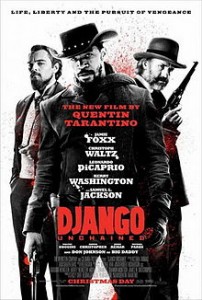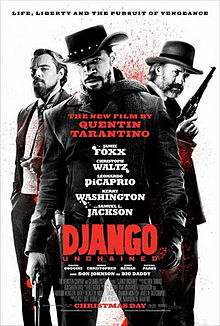 Soon Black History Month (Feb) will be here, and if the past is truly prologue, we should expect the typical, mediocre and depoliticized historical trivia that gets passed off as “Black History.”
Soon Black History Month (Feb) will be here, and if the past is truly prologue, we should expect the typical, mediocre and depoliticized historical trivia that gets passed off as “Black History.”
However, I intend to combat this with historical commentary, that occasions a more relevant way in which to engage Africana history, philosophy, and political thought both on the Continent and throughout the Diaspora.
With the release of Django Unchained we see one of the few moments in U.S. cinematographic history where southern plantation slavery is thrust upon the big screen as a context for the material and social violence that is so traditionally American. If the American south is the conventional home of all-things white supremacy, then certainly the American north — particularly Rhode Island — must have been its principal financier.
 W. E. B. Du Bois, the venerable American historian, sociologist, Pan-Africanist, and first African American to earn a doctorate from Harvard, chronicled Rhode Island’s centralized position as a primary trader in African people in his doctoral dissertation The Suppression of the African Slave Trade.
W. E. B. Du Bois, the venerable American historian, sociologist, Pan-Africanist, and first African American to earn a doctorate from Harvard, chronicled Rhode Island’s centralized position as a primary trader in African people in his doctoral dissertation The Suppression of the African Slave Trade.
Rhode Island became the greatest slave-trader in America. Although she did not import many slaves for her own use, she became the clearing-house for the trade of other colonies.
Du Bois would go on to quote Rev. Samuel Hopkins, a theologian who preached at the First Congregational Church in Newport, Rhode Island for over three decades:
The inhabitants of Rhode Island, especially those of Newport, have had by far the greater share in this traffic, of all these United States. This trade in human species has been the first wheel of commerce in Newport, on which every other movement in business has chiefly depended. That town has been built up, and flourished in times past, at the expense of the blood, the liberty, and happiness of the poor Africans; and the inhabitants have lived on this, and by it have gotten most of the their wealth and riches. (1787)
Years later scholar Jay Coughtry, in his ground-breaking work on the Rhode Island slave trade, The Notorious Triangle: Rhode Island and the African Slave Trade, 1700-1807, informs us that…
Throughout the eighteenth century, Rhode Island merchants controlled between 60 and 90 percent of the American trade in African slaves. … in no other colony or state did the slave trade play as significant a role in the total economy.
I am less interested in film review styled critiques of Tarantino’s movie (which I think people should see). Perhaps it would be more useful to use moments such as his film occasions to break with the ways in which America’s “peculiar institution” — racialized chattel slavery — is re-imagined as a unique and centralized southern phenomena. While singularly viewing slavery in the context of a southern plantation affords ways to understand some of the base physical, social and religious horrors of white supremacy, it elides its fundamental financial elements. Black flesh was transformed into literal commerce, and no one understood this better than Rhode Islanders.
After a brief lull during the Revolutionary War Rhode Island, as a new state, recommenced its trade in humans; and this time one clan would lead the way. Coughtry’s thorough examination of official shipping records from the Works Projects Administration for Bristol, Rhode Island revealed that a single family — the D’Wolfs…
…had the largest interest in the African slave trade of any American family before or after the Revolution…
Northerners have historically laid the moral responsibility of this nation’s “original sin” at the feet of wealthy southern political actors. However, the fascinating irony is that Django should have been obliged to seek retribution in locations like Newport and Bristol, rather than Mississippi and Tennessee.
Malcolm X was right. The southern part of the United States begins at the Canadian border.


Deprecated: Function get_magic_quotes_gpc() is deprecated in /hermes/bosnacweb08/bosnacweb08bf/b1577/ipg.rifuturecom/RIFutureNew/wp-includes/formatting.php on line 4387
Deprecated: Function get_magic_quotes_gpc() is deprecated in /hermes/bosnacweb08/bosnacweb08bf/b1577/ipg.rifuturecom/RIFutureNew/wp-includes/formatting.php on line 4387
Deprecated: Function get_magic_quotes_gpc() is deprecated in /hermes/bosnacweb08/bosnacweb08bf/b1577/ipg.rifuturecom/RIFutureNew/wp-includes/formatting.php on line 4387